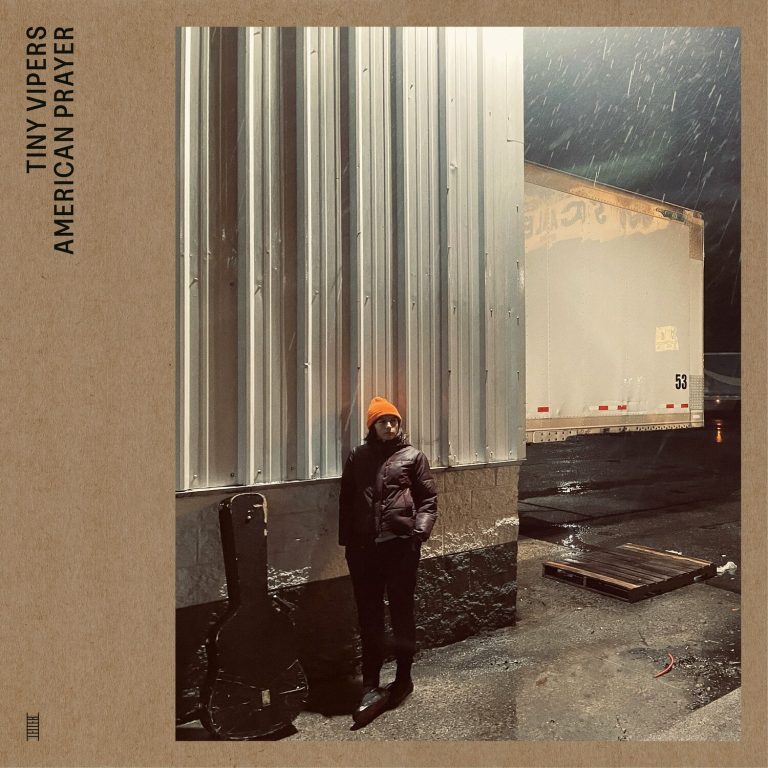In some ways, it feels like it’s been over a decade since the last Tiny Vipers album. In 2009, Jesy Fortino put out her second Tiny Vipers album, Life on Earth, on Sub Pop. It was full of humid, desert-heat folk songs, broken down to their absolute elemental cores, stripped of everything they didn’t need. Fortino’s songs mostly consisted of just her emotive voice — with its odd inclination toward unique phrasing or cracking whoops — and her gentle acoustic guitar, which usually ambled through slow motion, looping, spacious fingerpicked progressions. Her folk music wasn’t warm in a fuzzy sense; it was hot in a desolate, intense sense, like the songs were being calcined as we heard them, a live etching onto stone.
Then she vanished for eight years, before releasing her third proper Tiny Vipers LP, 2017’s Laughter, while she studied at university. But the record was a massive departure, featuring a much heavier use of synths and keyboards, leaning far more toward ambient music than most of her catalog before it.
Almost six years later, though, Fortino has returned again, and she’s back to her old tricks. Her three-track American Prayer EP is another dive into the hot sand of her older material, sounding almost prehistoric in its clear-eyed minimalism. Her knack for loping, deceptively simple guitar playing is on full display, as is her incisive and abstract lyrical focus. Her voice — forthright in the mix again, where it belongs — is still a thing of wild, crackling beauty. It’s definitely more on the Joanna Newsom or Josephine Foster side of folk music than it is a Laura Marling or Julie Byrne, but it’s a powerful and solitary instrument. Despite having such an apparently basic set up of just voice and guitar, on American Prayer, Fortino reminds us that no one sounds quite like her.
The opening title track starts out like classic Tiny Vipers. Some slow chords get plucked out, reverberating in a swathe of reverb. Then Fortino’s voice comes in, detailing a story about when she first started smoking cigarettes as a teenager. This story carries us through the bulk of the track, and its attention to detail — in which her lyrics don’t fit neatly into rhyme schemes or hew too closely to neat meter — comes perilously close to derailing the song. But then something sort of magical happens. Her voice becomes subtly more insistent, eventually cresting in a higher, falsetto register like we’ve never heard from her before. She basically belts, and it cuts through the memory in the song like a hatchet through the fog. Her story switches then to a tale of a runaway (“The only way to really get free / Was to hitch a ride”) who will do anything to get out of the cycle she’s found herself in. “They say it’s too dangerous for a girl to walk alone,” she sings, but admits “I guess I’d rather go missing.”
It’s a heartbreaking detail, the kind Fortino has real skill with. She finds those striking, small, breaking moments and zeroes in on them. In that moment of the song — capped by some truly lonesome-sounding wordless melodizing, which is a motif in her work — Fortino’s story of a smoking teen becomes something larger; it’s a picture of remoteness and solitude, and the desire to abandon it for something, for anything.
This sense of looking for answers is found elsewhere on the EP as well, but the other two songs don’t quite hit the highs of the opening song. “The Elevator” stumbles through some spare guitar for about 90 seconds before Fortino’s voice joins in. Her short story here is about a man she meets in an elevator who is convinced he can’t walk, who may or may not be running away from a pursuer, which spooks everyone enough to never take the elevator again. Her time frame shifts (it starts out with a memory from “last night”, but later her narrator says “Ever since that night…” as if it happened ages ago), but aside from some of that light Lynchian drama, the song feels more like a wisp of an idea than a fully-fledged song.
“Tormentor” closes things off with a more robust chord progression and melody, with Fortino’s narrator fighting with the desire to push away or keep close to their antagonist. “I will never be bored / Because I know your storm can come suddenly”, she sings, disquietingly. Her voice reaches back up toward its higher register, plaintive and nearly pleading. It’s a beautiful and somewhat dreary end to the EP (“I’ve learned the soul can only grow / When body is bent until broken” goes the gut-punch final line), but that’s the Tiny Vipers wheelhouse, as is the whole EP. Though American Prayer is a brief sojourn back into Jesy Fortino’s haze, it’s a dark and exciting taste of what she’s still capable of when she tries to harness the very air of life around her.

